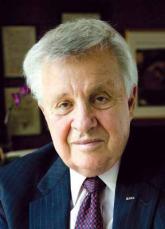These characteristics are certainly sounding more and more applicable to Tashfeen Malik and Syed Farook. We have identified four prominent clusters of motivations that appear to embody the series of personality traits common to lone wolf terrorists. These identified clusters, often overlapping, include the Glory Seekers, the Hero Worshipers, the Lonely Romantics, and the Radical Altruists. An act of terrorism puts their names in the headlines and makes them the heroes to the world of radical Islam.
These individuals have an inflated sense of self-worth and believe their actions will set things right in the world. They subordinate their individuality to what they believe to be the group cause. Many of these individuals have unfounded anger, perceiving slights they themselves have never personally or physically experienced. It is exactly because of this element of perceived oppression that the extent of actual marginalization in the community becomes irrelevant. All the love and open arms in the world will not stop them from hiding behind the perceived misfortune or victimization of the Muslim community, because they themselves are seeking to convince others that they are suffering more than most and therefore they personally can feel entitled to shame others’ actions and feelings. This mindset obviously has dangerous consequences, as radical Islam becomes a vehicle used to give a voice to their own narcissistic rage.
As more details continue to be revealed in the aftermath of San Bernardino, we suspect a clearer picture will emerge showing the extent to which these two identified shooters were influenced, at least in part, by radical Islamic propaganda on the Internet that expresses the oppression of the Muslim community. There is a continuous theme in ISIS propaganda calling on individuals to take action for the community. There is no evidence thus far that there was communication with ISIS operatives. Whether they had direct or indirect contact with ISIS operatives, this radical propaganda feeds the narcissistic rage and the conscious or unconscious wish for narcissistic fulfillment.
Terrorists operating under the ISIS banner have proved even more adept at disseminating extremist propaganda online and via social media than previous groups before them. In the past, lone wolf terrorists, while frequently proving rather inept in their terrorist skill sets, often sought to carry out an act that would eclipse Sept. 11, 2001, dreaming of the day when their names would appear in news headlines around the world. Given the additional rounds of ammunition and bomb devices found in Farook and Malik’s townhouse, we can assume they had planned to carry out a series of attacks. Because of the effectiveness of the ISIS propaganda machine, perhaps the couple realized that such a profound act is no longer necessary. One or two lone wolves simply need to open fire on a soft target, such as in San Bernardino, to become rock stars in the world of radical jihad.
This focus on soft targets, with the inherent reward of being celebrated as the next Rambo of the radical jihadist movement, represents an effective escalation in lone wolf tactics and a fulfillment of a goal long pushed for in the world of radical online propaganda. What better way to receive validation as an Islamic warrior than by becoming the cause célèbre in the world of radical Islam? To identify individuals so inspired, who are moving to actualize these fantasies, will be extremely difficult.
Dr. Post is the founding director of the political psychology program at the Elliott School of International Affairs, The George Washington University, Washington. He is the author of “The Mind of the Terrorist” (New York: Palgrave Macmillan, 2008). Mr. McGinnis, a former Air Force intelligence, surveillance, and reconnaissance operator, is a doctoral candidate in clinical psychology at the university. Dr. Moody, a graduate of the program, is a forensic psychologist in the federal prison service.
